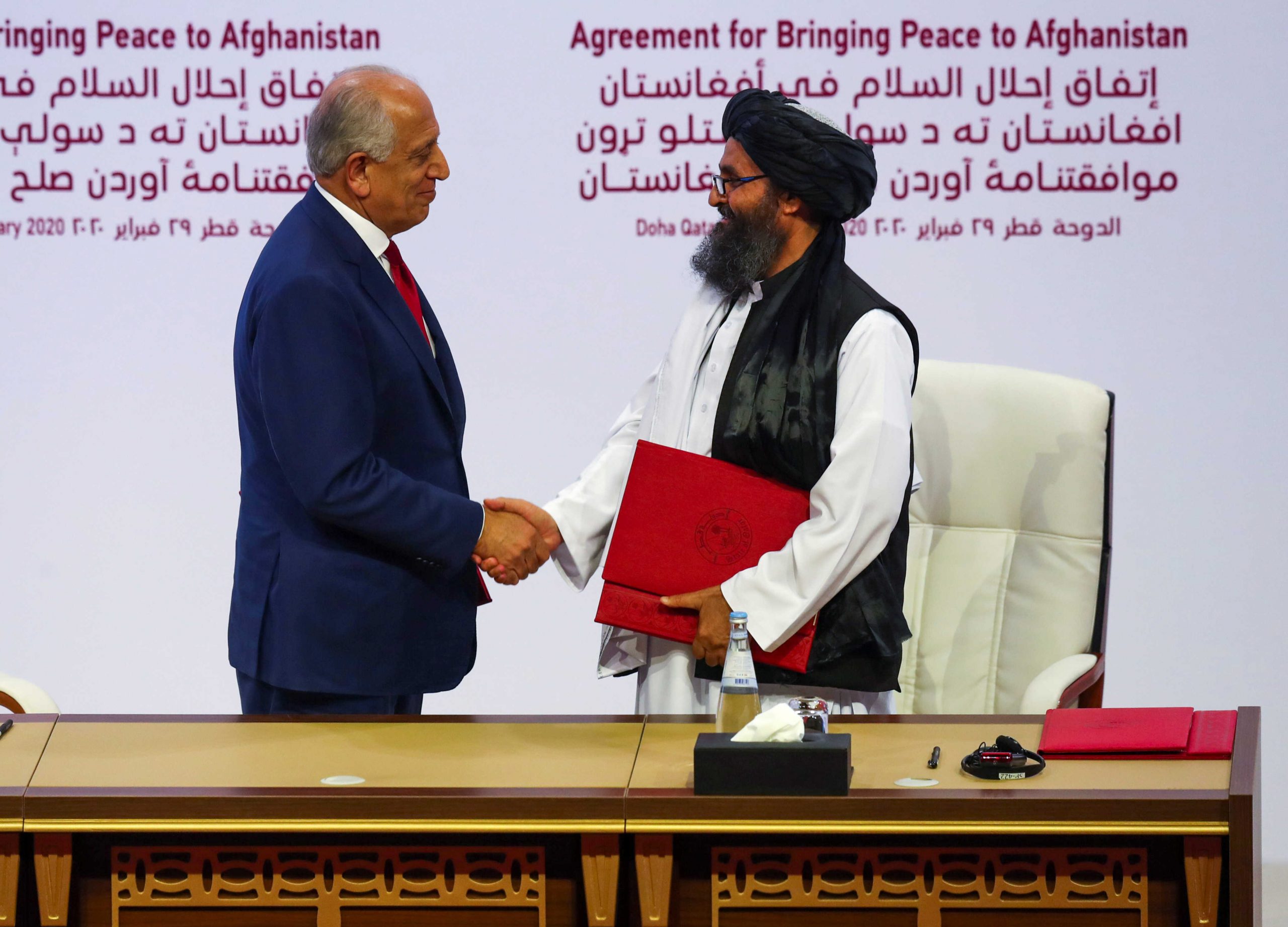
Along with large part of West Asia, Afghanistan has been one of the theatres of international politics. Big parleys of international politics have only used the land as strategic base and never allowed the nations of this region evolving with true spirit of nationhood. Naturally, like other countries of this region baring a few, peace and developments are far cry in Afghanistan. Another point is: the process that continued to use Afghan soil created discrimination among different local populace. Since the end of World War II and emergence of Pakistan after the eclipse of British colonial rule, Islamabad always seemed making undue influence in Kabul affairs. The prejudice of Islamic solidarity propagated and infused tactically mainly by Pakistan only aggravated the situation in that country. However, reality is: religion failed miserably to keep things in order in that country.
Pakistan since its inception as a separate nation in the global-map made all efforts to ensure its strategic hold in that country. Wrong policy, prejudiced perception and hegemony of army tell the saga of Pakistan that always took shelter in the lap of big powers. Same is the case with Afghanistan. However, geo-strategic location of Afghanistan also invited perils and the land confined to a battleground of big powers to extend supremacy in the adjoining region. In fact, be it Afghanistan or any other part of West Asia, war cry of the important parleys of international politics kept the region ever on the boil. Once it was United Sates versus USSR, now it is US versus China. All these negative factors never allowed these nations walking on the path of peace and development.
Present Afghanistan is paying heavily for all these. In fact, since the process of US withdrawal from Afghanistan began, things seem turning bad to worse in this ill-fated nation. But important point here is the US policy regarding Afghanistan. After the 9/11 drastic terror attack, it was US that led the mission against the then Taliban regime anonymously. Even after the fall of Taliban regime, US force roamed throughout Afghanistan and substantial parts of Pakistan. US soldiers as directed by Pentagon unleashed worst atrocities in its search for Taliban fugitives in this vast region. What can be more ironic that US has not hesitated to engage into negotiated settlement with the same Taliban militia? Apart from anything else, this proves that how United States’ influence is sinking in not only Afghanistan but also other States of West Asia. Iraq, Syria and Turkey have proved to be virtual graveyards for the United States. But US is harvesting what it has sown so far in the real sense.
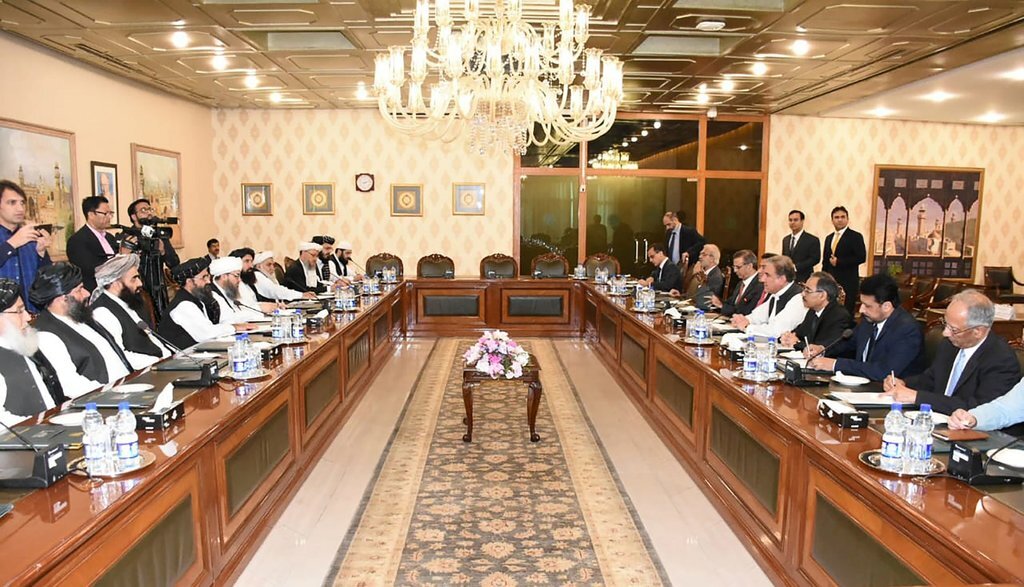
Here the more important question is: how the existing and emerging situation in Afghanistan is affecting security interests of the entire region. India has some legitimate concerns regarding the recent developments in the Afghan front. However, for India the more important fact is policy of keeping New Delhi outside the purview of the so-called US peace-deal with the Taliban for its troop withdrawal from Afghanistan. After all, India has been an important stakeholder in post-Taliban Afghanistan. India has contributed a lot in respect of rebuilding war-ravaged Afghanistan. India’s investment for infrastructure development, providing training to new Afghan police force and financial help to Afghanistan have been effective measures in the process of rebuilding Afghanistan and creating fertile ground for democracy striking roots there. Diplomatically, India-Afghanistan bilateral relations have grown and area of co-operation has extended since the end of Taliban regime there.
Afghanistan-India strategic partnership began to take shape during this time, which is very crucial from India’s perspective; be it New Delhi’s mission against Islamabad or India getting transit point to improve relationship with other countries of West Asia region. But the beleaguered Trump administration to escape from Afghanistan and particularly making Pakistan the most important stakeholder have poured cold water on India’s strategic mission and aspirations regarding both Afghanistan and large part of West Asia. So also, Taliban, Al-Qaeda, other terrorist organisations operational against India operating from Pakistani side as well as the terror machineries of Iraq, Syria and others may come closer now. There is every possibility and legitimate apprehension of China directly supporting all of them to counter both India and the United States. Hectic activities are on in the Gilgit-Baltistan region regarding completion of China-Pakistan Economic Corridor (CPEC) and China using all the SAARC nations against the strategic interests of India.
A recent report of United Nations available in the open media has highlighted the facts in a more convincing manner. Reports state, “the Taliban know that President Trump is eager to withdraw from Afghanistan and they are engaging in talks, not because they are interested in peace, but because they want to retake Afghanistan as early as possible, after the US withdrawal,” says Hussain Haqqani, Former Ambassador of Pakistan to the United States and Director, South & Central Asia, Hudson Institute, Washington, DC. “Anyone who is familiar with the Taliban’s ideology and has read their recent pronouncements knows their relationship with al-Qaeda. It is sad that the US negotiating team ignores the evidence of continued Taliban links with al-Qaeda just to be able to say they successfully negotiated a deal,” Haqqani says. Kugleman agrees, “The UN report underscores the flawed nature of the US deal with the Taliban, because it shows how the Taliban is failing to uphold the one major commitment that the deal obliges it to make. In effect, this report lays bare the weaknesses of a deal that Washington likely sought more for political cover for a withdrawal than for a pathway to peace-even though the US badly wants the peace process to succeed.”
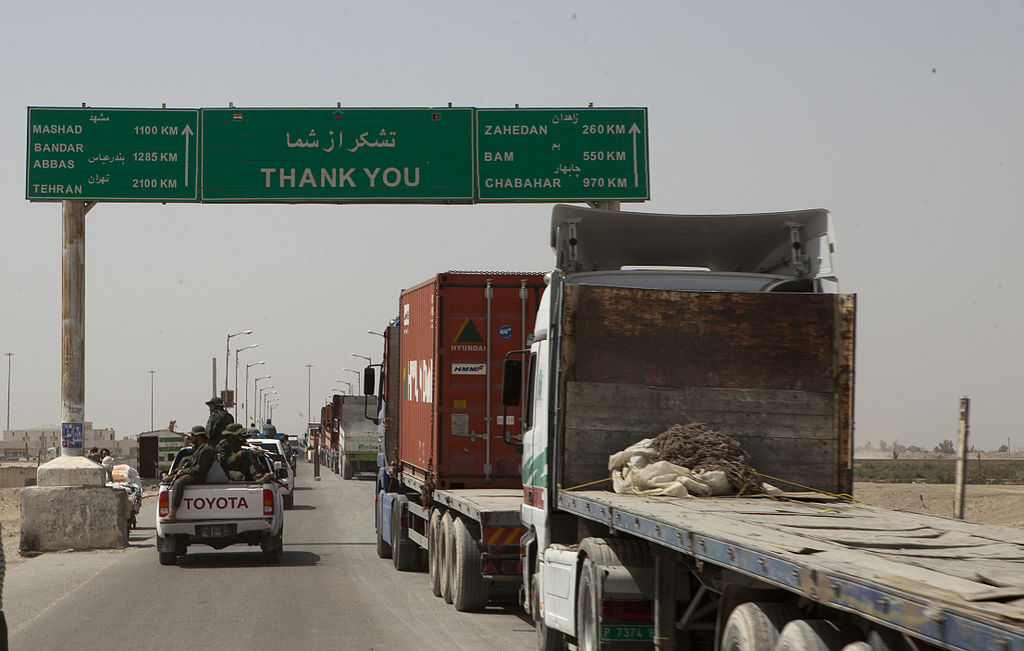
Similarly, in the same Report concern of India has also got echoed. “The latest report of the United Nations Security Council’s Analytical Support and Sanctions Monitoring Team has further established Pakistan’s direct terror links to terrorism in Afghanistan along with the Afghan Taliban, which continues to maintain ties with the al-Qaeda even in the shadow of the so-called US-Taliban ‘peace deal’ which was signed in Qatar’s capital Doha in February 2020. The report goes on to state that Jaish-e-Mohammed and Lashkar-e-Tayyiba facilitate the trafficking of terrorist fighters into Afghanistan, who act as advisers, trainers and specialists in improvised explosive devices (IEDs). Both groups are responsible for carrying out targeted assassinations against government officials and others. Lashkar-e-Tayyiba and Jaish-e-Mohammed were stated to have approximately 800 and 200 armed fighters, respectively, co-located with Taliban forces in Mohmand, Sarah, Due Baba and Sherzad districts of Nangarhar province. It is striking how frequently Pakistan is referenced in the UN report – especially as the nationality of many fighters based in Afghanistan, and as a key destination for the Afghan drug trade that is enabled to a large extent by the Taliban.
There’s also ample mention of Pakistani terror groups, like JeM and LeT, that are close to the Pakistani State and are facilitating activities in Afghanistan. If all this is true, it has considerable implications for a Pakistani State that has put on a full-court press to convince the international community – including the FATF – that it is shutting down its terrorist networks says Michael Kugelman, Deputy Director, Asia Programme, The Wilson Centre, Washington, DC. Interestingly, the report comes merely weeks after US Special Representative for Afghanistan Reconciliation Zalmay Khalilzad met India’s National Security Advisor Ajit Doval and External Affairs Minister Dr S Jaishankar in New Delhi, and sought their support in the peace process. Khalilzad went on to ask India to directly talk with the Taliban. New Delhi reminded Khalilzad about the recent attack on the Gurdwara in Kabul, and attempts to target the Indian mission by the Taliban. The Indian government is likely to observe the developments from a far without directly jumping into negotiations. The inputs in the report regarding the LeT and JeM are important because they confirm what India has been saying for a long time about their presence in Afghanistan. The fact that they are co-located with the Taliban shows the continuing influence of Pakistan. Hence, India needs to continue to be sceptical about opening formal talks with the Taliban, says Tilak Devasher, Member, National Security Advisory Board (NSAB) of India.”
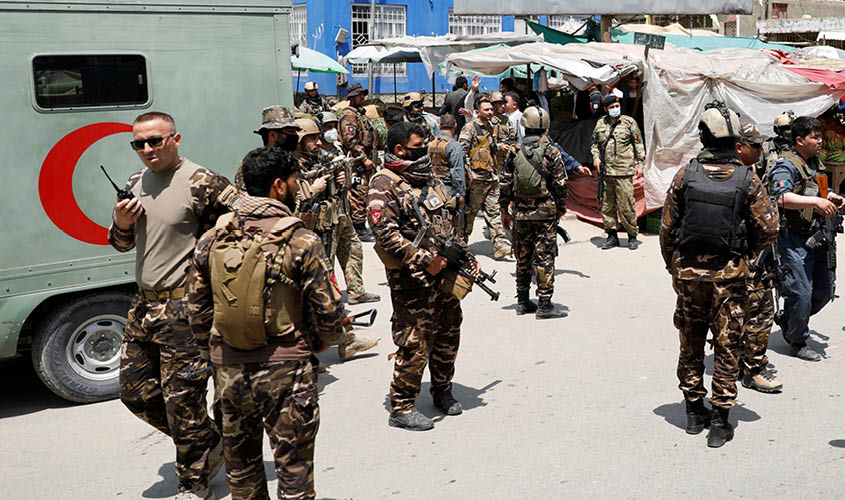
This is no doubt encouraging at least later than never that UN has accepted India’s concern in black and white. However, this is known to all what United Nations can do. Record of accomplishment of United Nations in ceasing conflict is not at all impressive. Naturally, causes and concerns of India cannot be served only by issuing statements and writing papers. The emerged situation has brought multi-pronged challenges for India, which demands New Delhi’s larger strategic endeavours. In this context, India’s bilateral relation with Iran can play an effective role. After all, Iran is better known for its liberal image unlike other Islamic nations. This is true that Iran maintains a good relation with China unlike United States. But in case of combating terrorism, Iran’s stand has always been loud and clear. Unlike some Islamic nations of West Asia, Iran has hardly allowed its soil for terror base. This means that Iran has legitimate concern regarding the apprehensive developments in Afghanistan. An instable Afghanistan is more threatening for Iran than India concerning the geo-strategic locations. Time is to extend further India-Iran relations and efforts should be made to build strategic partnership afresh on the backdrops of changed situation in Afghanistan. This is true that China enjoys certain leverage in the ports like Chabahar, Bandar Abbas and Gwadar. India must engage into agreements with Iran to minimise increasing Chinese influence in Iranian ports. The land route that provides accessibility to China reaching vast area of the West Asia depends on Iran’s consent. New Delhi must try to make larger co-operation with Tehran regarding Iran’s policy framing to restrict movement in its territory. In fact, in the given time too, Iran stands as an obstacle between the sinister design of China-Pakistan-Afghanistan and rest of the Arab world. This serves India’s strategic interests better than all other options.
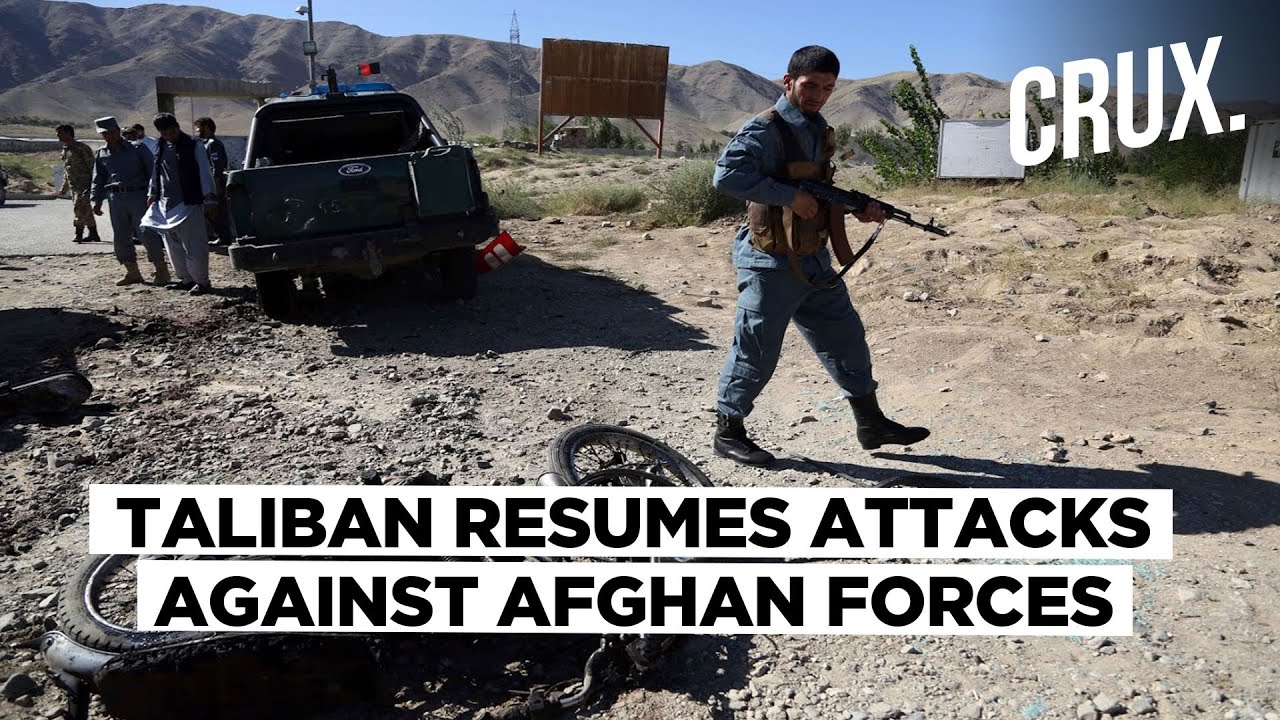
So also, India must not hesitate to interfere in the issues related to Afghanistan. This is true that United States did not ratify India’s role while engaging into peace-settlement with Taliban. However, does New Delhi need a certificate from the White House for this? Certainly not. India has been an important stakeholder in Afghan affairs for nearly two decades. This provides legitimacy to India’s role in Afghanistan in the given time as well. Present Indian regime must raise the issues like atrocities and human rights violations of the people belonging to Muslim community in China. This Muslim population is legal citizens of China. But China is enforcing them to accept communist culture in place of Islam and reading communist scriptures in place of the holy Quran. Thus, China is unleashing worst form of State brutality against the Chinese Muslims which needs to be hyped to unmask China. Similarly, India must increase vigilance across the area of PoK particularly the Gilgit-Baltistan region. Muslim tribe of Gilgit-Baltistan region has been agitating against Pakistani connection with China on several issues. Atrocity against fellow Chinese Muslims is one of the prime reasons. India must keep on supporting them and bring their outcry at the international forum.
More so, India’s strategic game-plan should include the issues of rebels of Pakistan’s Baluchistan Province. That means, in the larger strategic framework of India, China’s Xiangtan Province, Gilgit-Baltistan region, parts of Kashmir under illegal occupation of China and the Baluchistan Province of Pakistan should hold larger prominence. These targeted areas serve India’s strategic interests more effectively in case of restricting evil design of China and Pakistan regarding Afghanistan. Time has come India should display solidarity with existing regimes and contemporary setups of Iraq, Syria, Turkey and others where Trump administration enjoys so-called hegemony. People of Indian origin living as US citizens must try to make the entire things as issues in poll-bound America. This can be used as an important ploy to make heed the political parties of US and the American rank and file. All these put together provide India ways and accessibility to harness her strategic interests in present Afghanistan and the periphery.
– The author is a Guwahati-based strategic affairs expert








